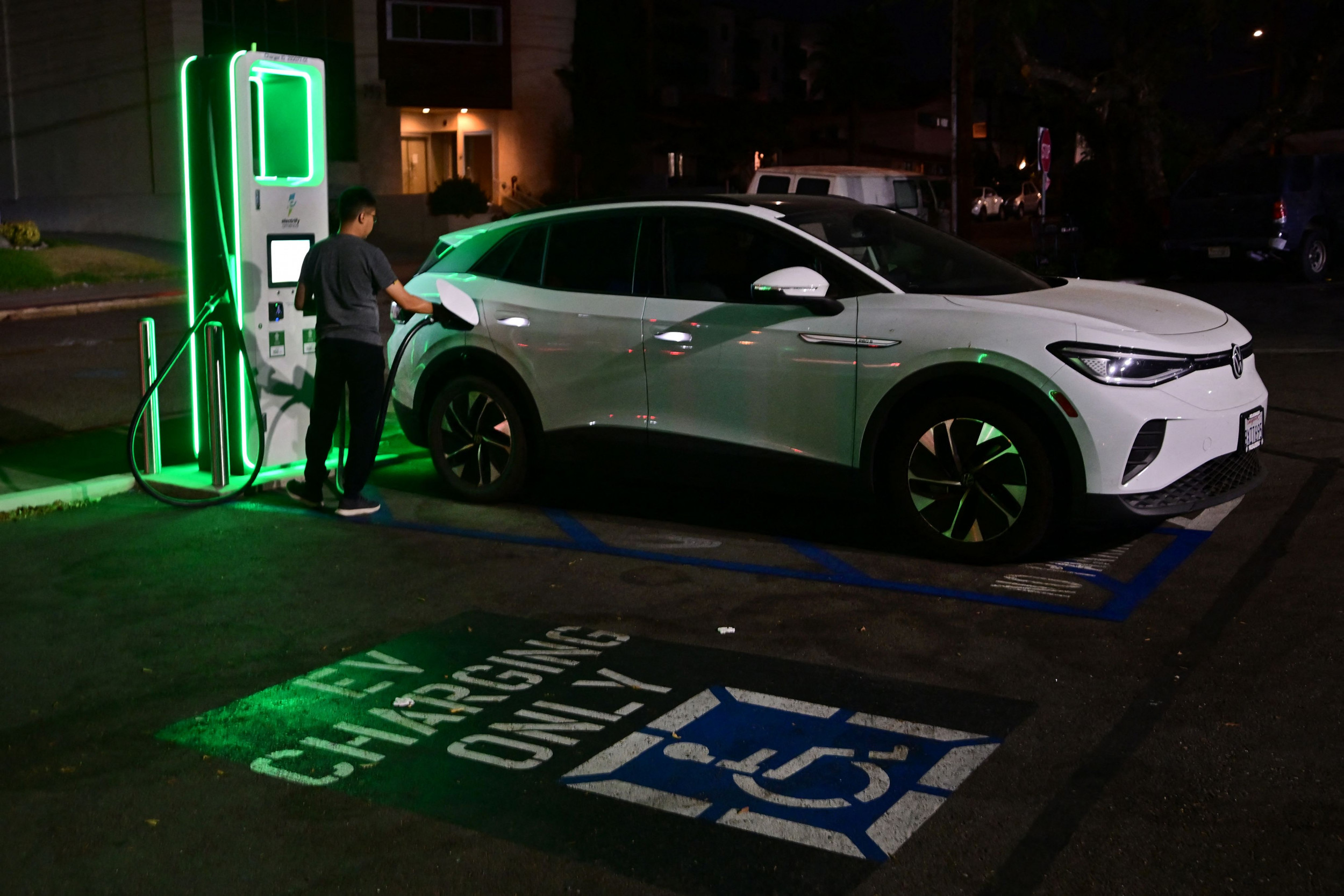Increased Opposition To EV Mandates From Car Dealerships

Table of Contents
Financial Concerns and Infrastructure Limitations
Dealerships face substantial financial hurdles in adapting to EV sales. The high upfront investment required for infrastructure upgrades and employee training poses a significant risk, especially for smaller businesses. This financial burden is a primary driver of opposition to aggressive EV mandates.
- High initial cost of installing EV charging stations: Installing a robust network of fast chargers capable of handling multiple vehicles simultaneously is a costly undertaking. The expense can vary significantly depending on the dealership's size, location, and the number of chargers installed.
- Need for specialized EV mechanic training: Maintaining and repairing EVs requires specialized knowledge and tools, different from those used for internal combustion engine (ICE) vehicles. Training existing mechanics and hiring new, qualified EV technicians adds to the financial burden.
- Uncertainty regarding consumer demand and return on investment: Dealerships are investing heavily in EV infrastructure with uncertain returns. The current market demand for EVs varies significantly by region and demographic, making it difficult to predict the profitability of these investments.
- Lack of government support for infrastructure upgrades in some regions: While some governments offer incentives for EV infrastructure development, support remains inconsistent across different regions. This uneven distribution further exacerbates the financial challenges faced by dealerships.
The limitations of current EV charging infrastructure also impact sales. Range anxiety, caused by concerns about the availability of charging stations, remains a key barrier to EV adoption. A lack of convenient and reliable charging options limits the practicality of EVs for many consumers, impacting dealerships' ability to sell them profitably.
Consumer Preferences and Market Readiness
Consumer hesitancy towards EVs is another major factor fueling opposition to EV mandates. While EV adoption is growing, various factors continue to hinder widespread acceptance.
- Range anxiety remains a significant barrier to EV adoption for many consumers: The limited range of some EVs compared to gasoline-powered vehicles is a major concern for potential buyers. Concerns about running out of charge before reaching a charging station significantly impact purchasing decisions.
- Charging infrastructure gaps limit EV usability in certain areas: Uneven distribution of charging stations, especially in rural areas and along major highways, restricts the practical usability of EVs.
- Higher initial cost of EVs compared to gasoline-powered vehicles: The higher upfront cost of EVs, even with government incentives, remains a barrier for many budget-conscious consumers.
- Consumer perception of limited model choices and functionalities: Some consumers believe that the range of available EV models is limited, and that EVs lack certain features or functionalities found in traditional vehicles.
These consumer preferences indicate that the market isn't fully ready for the aggressive push towards EV adoption mandated by some governments. Dealerships, facing the brunt of this market reality, are understandably concerned about their profitability and viability.
Practical Challenges of EV Sales and Service
Selling and servicing EVs presents unique challenges compared to traditional vehicles. Dealerships need to adapt their business models to accommodate these differences, adding to their operational costs.
- Different sales techniques and customer education required for EVs: Selling EVs necessitates educating customers about charging infrastructure, range limitations, and other unique aspects of EV ownership. This requires specialized sales training and different marketing strategies.
- Specialized tools and training needed for EV repairs and maintenance: EV repairs and maintenance require specialized tools, diagnostic equipment, and technician training, adding to operational expenses.
- Challenges in managing EV battery warranties and replacements: EV batteries are expensive to replace, and managing warranties and replacements requires specialized knowledge and processes.
- Longer service times compared to ICE vehicles in some instances: Depending on the repair, EV service can sometimes take longer than servicing an internal combustion engine vehicle.
These practical challenges add to the overall strain on dealerships, making the transition to a predominantly EV market more difficult and expensive.
The Role of Government Regulations and Support
Government regulations and incentives play a pivotal role in shaping both consumer demand and dealership preparedness for EV mandates. Well-designed policies can help alleviate the pressures on dealerships and accelerate EV adoption.
- Analysis of the effectiveness of current EV incentives and subsidies: Current incentives vary widely in their effectiveness, with some proving more successful than others in encouraging EV adoption.
- Assessment of the impact of different regulatory approaches on the automotive industry: Different regulatory approaches have varying impacts on dealerships and the automotive industry as a whole. A balanced approach is crucial.
- Discussion on the importance of clear and consistent government policies: Clear, consistent, and predictable government policies are essential to provide dealerships with the certainty they need to make long-term investments.
- The need for balanced regulations that consider both consumer needs and dealer viability: Regulations should balance environmental goals with economic realities, ensuring a sustainable transition that doesn't jeopardize the viability of dealerships.
By implementing better-designed policies that support both consumer demand and dealership infrastructure development, governments can foster a more equitable and sustainable transition to electric mobility.
Conclusion
Increased opposition to EV mandates stems from a complex interplay of economic factors, consumer behavior, and regulatory challenges. Dealerships face significant financial burdens in adapting to EV sales, and consumer hesitancy towards EVs remains a considerable hurdle. Practical challenges in selling and servicing EVs further complicate the transition. However, well-designed government policies can alleviate some of these pressures, creating a more sustainable and equitable pathway towards widespread EV adoption. Understanding the nuances of the opposition to EV mandates is crucial for fostering a sustainable and equitable transition to electric mobility. Continue your research to form your own informed opinion on the topic, and consider engaging with relevant organizations working on EV adoption strategies.

Featured Posts
-
 Contrer Les Actes Irreflechis Strategies Efficaces
May 05, 2025
Contrer Les Actes Irreflechis Strategies Efficaces
May 05, 2025 -
 May 3rd Ufc Fight Night Deiveson Figueiredo Faces Cory Sandhagen In Des Moines
May 05, 2025
May 3rd Ufc Fight Night Deiveson Figueiredo Faces Cory Sandhagen In Des Moines
May 05, 2025 -
 Verstappen And Piquets Daughter Lily The Latest News From The Racing World
May 05, 2025
Verstappen And Piquets Daughter Lily The Latest News From The Racing World
May 05, 2025 -
 Cbf Divulga Tabela Basica Do Brasileirao Serie A 2024
May 05, 2025
Cbf Divulga Tabela Basica Do Brasileirao Serie A 2024
May 05, 2025 -
 2025 Kentucky Derby A Pace Analysis And Winning Strategy
May 05, 2025
2025 Kentucky Derby A Pace Analysis And Winning Strategy
May 05, 2025
